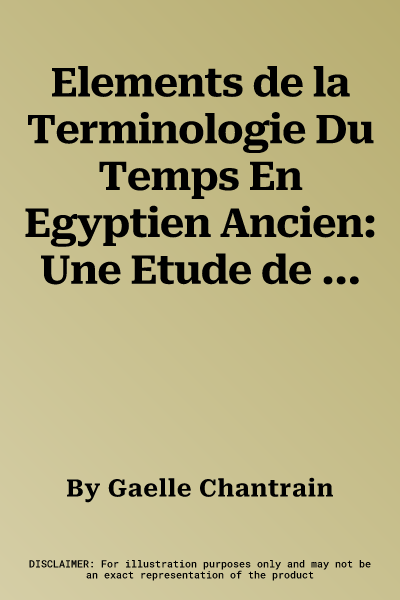Gaelle Chantrain
(Author)Elements de la Terminologie Du Temps En Egyptien Ancien: Une Etude de Semantique Lexicale En DiachroniePaperback, 1 January 2020

Qty
1
Turbo
Ships in 2 - 3 days
In Stock
Free Delivery
Cash on Delivery
15 Days
Free Returns
Secure Checkout

Part of Series
Lingua Aegyptia Studia Monographica
Print Length
344 pages
Language
French
Publisher
Widmaier, Kai
Date Published
1 Jan 2020
ISBN-10
3943955214
ISBN-13
9783943955217
Description
Product Details
Author:
Book Format:
Paperback
Country of Origin:
US
Date Published:
1 January 2020
Dimensions:
23.88 x
17.02 x
2.03 cm
ISBN-10:
3943955214
ISBN-13:
9783943955217
Language:
French
Location:
Hamburg
Pages:
344
Publisher:
Weight:
907.18 gm